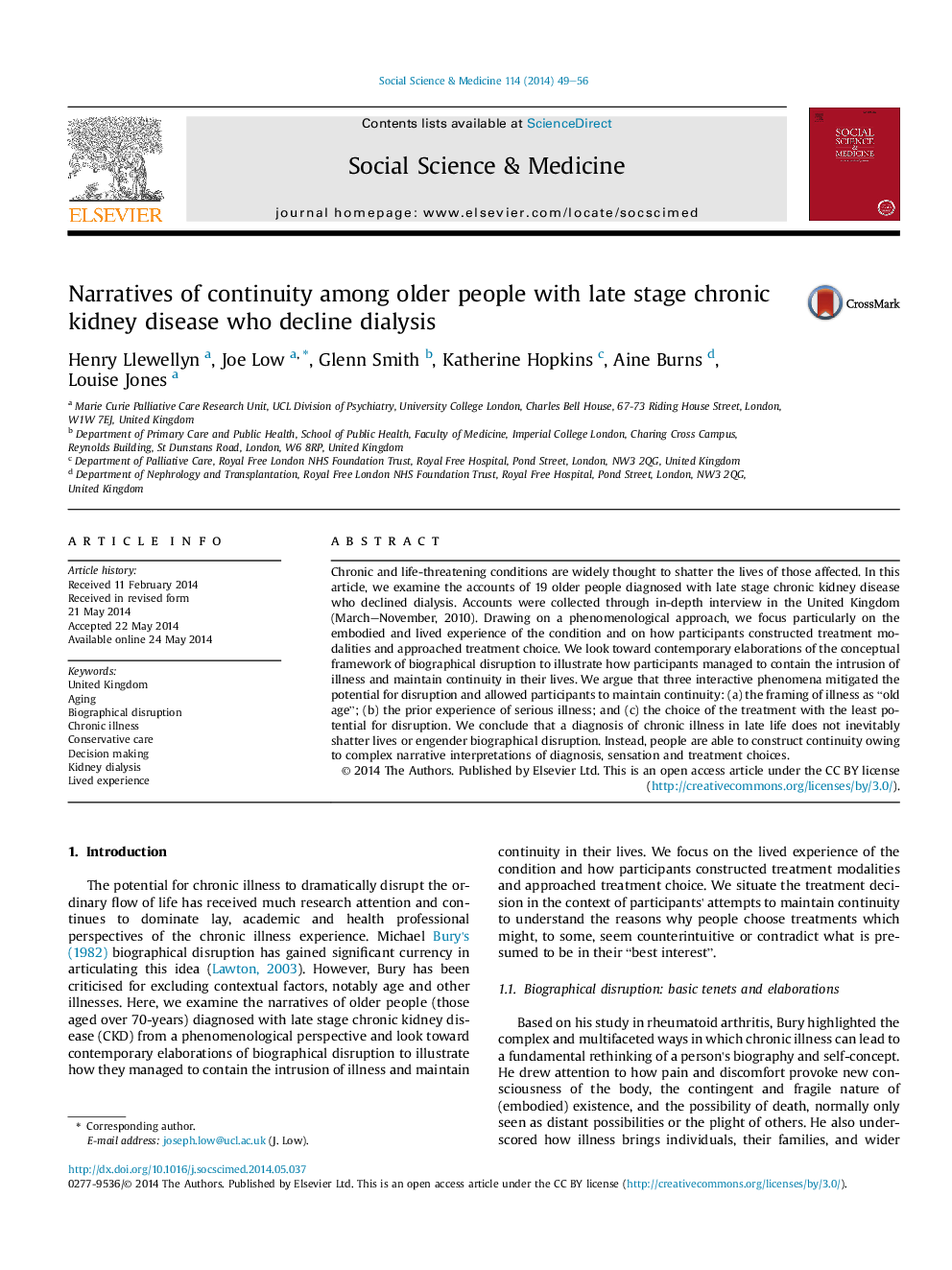| Article ID | Journal | Published Year | Pages | File Type |
|---|---|---|---|---|
| 7334764 | Social Science & Medicine | 2014 | 8 Pages |
Abstract
Chronic and life-threatening conditions are widely thought to shatter the lives of those affected. In this article, we examine the accounts of 19 older people diagnosed with late stage chronic kidney disease who declined dialysis. Accounts were collected through in-depth interview in the United Kingdom (March-November, 2010). Drawing on a phenomenological approach, we focus particularly on the embodied and lived experience of the condition and on how participants constructed treatment modalities and approached treatment choice. We look toward contemporary elaborations of the conceptual framework of biographical disruption to illustrate how participants managed to contain the intrusion of illness and maintain continuity in their lives. We argue that three interactive phenomena mitigated the potential for disruption and allowed participants to maintain continuity: (a) the framing of illness as “old age”; (b) the prior experience of serious illness; and (c) the choice of the treatment with the least potential for disruption. We conclude that a diagnosis of chronic illness in late life does not inevitably shatter lives or engender biographical disruption. Instead, people are able to construct continuity owing to complex narrative interpretations of diagnosis, sensation and treatment choices.
Keywords
Related Topics
Health Sciences
Medicine and Dentistry
Public Health and Health Policy
Authors
Henry Llewellyn, Joe Low, Glenn Smith, Katherine Hopkins, Aine Burns, Louise Jones,
